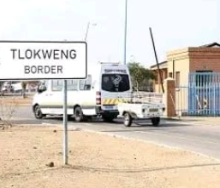The Organisation Undoing Tax Abuse has met with Minister of Transport Fikile Mbalula to propose a new ten-year driving licence renewal system to fix the chaotic backlogs that have become an ongoing headache for millions of motorists.
Outa said on Wednesday that it had met with Mbalula and informed him that extending all current driving licence cards for five years and issuing all new cards for 10 years would bring essential efficiency to the chaotic renewal system.
The organisation said it had discussed its research and recommendations that aimed to overcome a number of the difficulties facing motorists.
During the meeting, OUTA provided the Minister with a position paper motivating for solutions including 10-year licence cards.
“Extending the period of validity of driver’s licence cards from five to 10 years will immediately bring an end to the backlog chaos that is not going to be resolved for a long time, if the status quo remains,” Advocate Stefanie Fick, OUTA Executive Director said.
Outa proposed that this would also provide time for the Department of Transport to get on top of the systemic challenges that had led to the driver’s licence card renewal crisis and to develop a more robust and corruption-free solution.
The driving licence card renewal system has been chaotic. Administrative equipment is dysfunctional, the National Traffic Information System (NaTIS) is frequently down or slow, motorists can’t get bookings for slots in the queue, those who are able to book slots still have to endure endless queues, and corruption is a problem.
There was a backlog of about 320 000 driving licence card renewals due in 2020, with demand growing by 90 000 a month. The backlog has grown over the last two years, partly due to Covid-19 shutdowns, and hundreds of thousands of motorists now face a deadline of 31 March, while others caught in the backlog have not been granted an extension.
Outa has estimated that approximately 2.8 million driver’s licence card renewal applications have been affected by the backlog, with possibly half of those motorists now with expired cards. Mbalula recently announced that there would be no extension.
“The state should be obliged to move toward the more efficient options,” said Outa during its presentation to Mbalula.
Of 35 countries OUTA looked at in six regions across the world, the average period of licence validity was 8.5 years, ranging from three to 20 years. Africa and the Americas had the lowest periods at 5.6 and six years respectively, while the Middle East/Asia, Australasia and Europe had the highest at 8.6 years, 10 years and 11.5 years respectively.
OUTA established that in 2013, the former Transport Minister had in fact gazetted an extension changing the renewal period from five years to 10 years, but less than a year later this had been reversed. The organisation said it could not find any record of the decision to reverse the original decision.
“We hope the Department of Transport will take our input seriously and do more to work with civil society in finding solutions to many other challenges that need addressing in South Africa,” said Wayne Duvenage, Outa CEO.
In June 2021, OUTA carried out a survey through social media, with 3 685 respondents, about frustrations with the renewal system. A total of 65% reported frustration with the ineffectiveness of the online booking system. More than 10% said they had witnessed bribery, about 45% referred to “poor staff attitude” and 60% complained about long queues.













